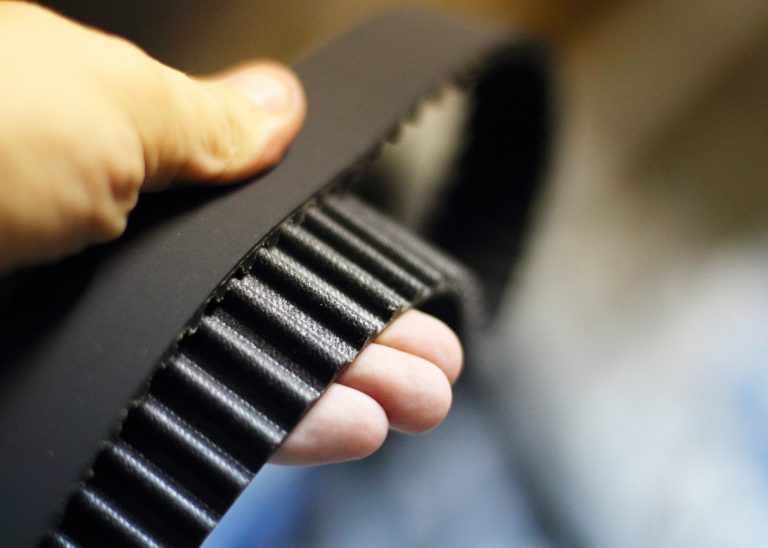The Importance of the Timing Belt
Like every other component in your vehicle, your timing belt will ultimately wear out and need to be replaced. Waiting until yours is broken to get a new one can highly problematic though; avoiding this scenario is definitely something you want to avoid.
The majority manufacturers recommend that your timing belt be changed out every 95,000 miles or so. Waiting until you reach this mileage mark isn’t advisable though, and being proactive in replacing your timing belt can actually save you a fair amount of money.
Comprised of rubber and high-tension fibers as well as various dense polymers, timing belts are responsible for synchronizing of your crank/camshaft(s) to ensure that your engine’s valves open/close in the proper intervals during the intake/exhaust stroke process. When your timing belt breaks, this causes the engine to shut down – sometimes immediately.
The two most common reasons for timing belts to fail are age/miles and the seizure of your vehicle’s water pump. If your water pump seizes, key gears turning which creates a force that breaks your belt. Cooling system failure, which can stem from not flushing your coolant regularly, is a primary instigator of this problem.
Stripped teeth are also a cause of timing belt failure as having a smooth section on the belt results in drive clog slippage. If your belt isn’t connected properly or if its tension isn’t properly calibrated, it will wear out faster than normal. Foreign rubbing against your timing belt can also lead to premature failure.
If you think you need to have a belt replaced or if you have any questions/concerns whatsoever about any other component in your vehicle, be sure to give our ASE-certified technicians a call at 205-663-6088 or schedule an appointment with us online. We’re here to help the drivers of Alabaster stay safely on the road year-round!




